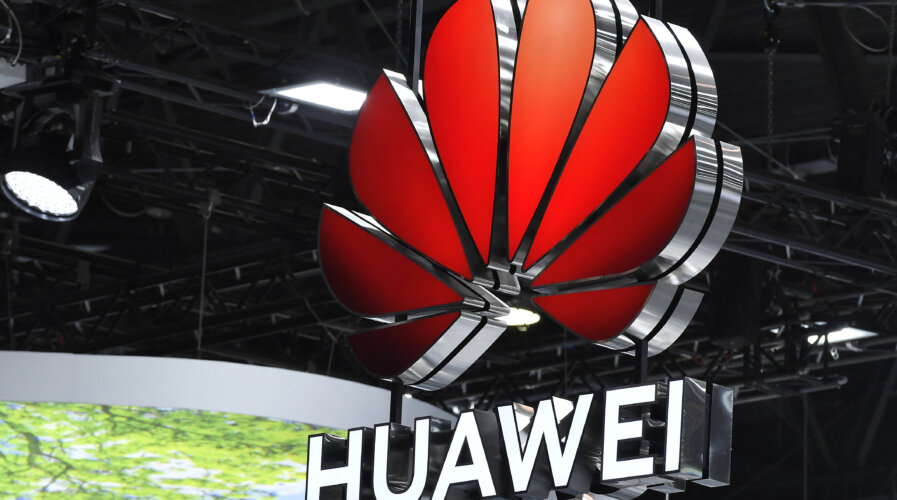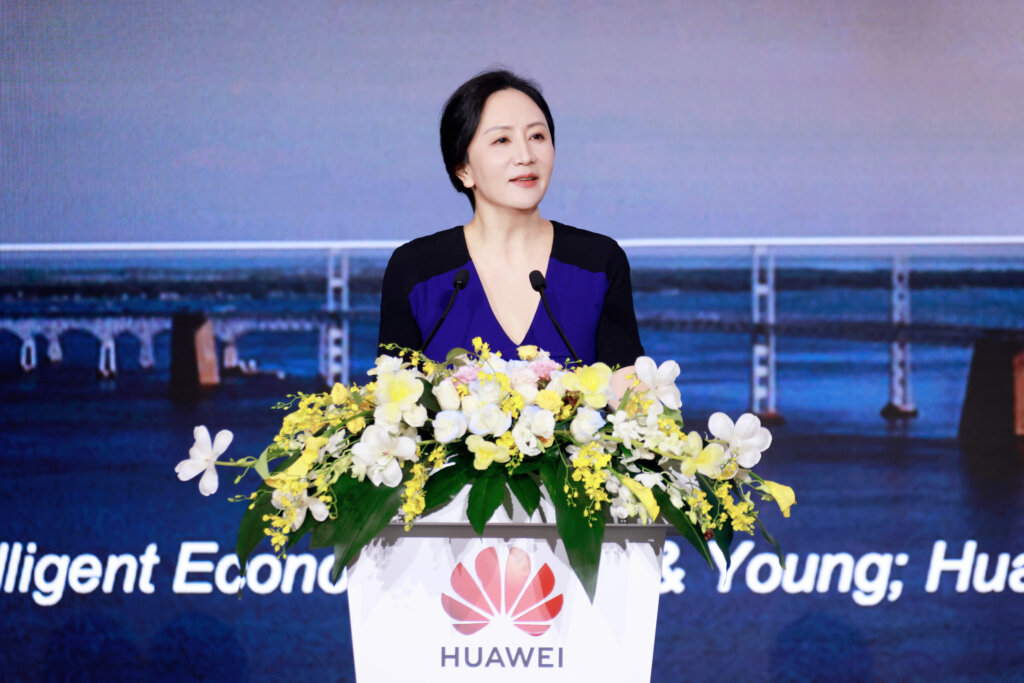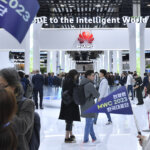
MetaERP is a cloud-based ERP system, fitting the trend of cloud-based and service-oriented ERP. (Photo by Pau BARRENA / AFP)
As Huawei unveils cloud-based MetaERP, should the US be concerned?
- Huawei’s MetaERP is a cloud-based ERP system, fitting the trend of cloud-based and service-oriented ERP.
- Huawei will keep working with its partners in the field of ERP, to build the core enterprise business system with complete, full-stack control and build more efficient and secure core enterprise business systems that are not subject to any restrictions.
- Huawei did not mention if MetaERP will be made available commercially
When it comes to Enterprise Resource Planning or ERP software, not many would think of Huawei as a tech provider that specializes in it. Most companies are well aware of ERP that is provided by other tech giants like Oracle, SAP, Microsoft, Workday, and others. But Huawei has actually been in the ERP market until it was added to the US entity list.
On May 16, 2019, the US added Huawei to the Entity List. Within just a few days, ERP vendors notified Huawei that their supply and services would be suspended. Huawei’s old ERP system was the core system underpinning the company’s enterprise operations and rapid development for more than 20 years.
In fact, the old ERP system supported Huawei’s billion-dollar efficient business operations across more than 170 countries and regions worldwide. Any issue with the system would threaten to paralyze the nervous system of the entire business.
As such, Huawei needed to think of a solution. And the only way of doing that was to replace their legacy ERP system with a new one. The new system would have to be a completely self-controlled ERP. The entire journey of developing a new ERP system has been Huawei’s most extensive and complex transformation project ever undertaken. Over the past three years, Huawei has invested significant resources and assigned several thousand people to this project, while also working with industry and ecosystem partners to overcome related challenges.
The result – a new ERP system was born. At the Huawei Global Analyst Summit, Huawei introduced the MetaERP. This new, future-oriented, ultra-large-scale, and cloud-native MetaERP system has already gone live, replacing the old ERP system. MetaERP is a cloud-based ERP system, that fits the trend of cloud-based and service-oriented ERP. A cloud-based ERP system will allow enterprises to achieve cloud-based deployment worldwide and adjust cloud resources as required based on their service traffic during peak and non-peak periods.
MetaERP currently handles 100% of Huawei’s business scenarios and 80% of its business volume. MetaERP has already passed the tests of monthly, quarterly, and yearly settlements while ensuring zero faults, zero delays, and zero accounting adjustments.
Huawei goes forward with own ERP
According to Tao Jingwen, Huawei’s Board Member and President of the Quality, Business Process & IT Mgmt Dept, as Huawei was cut off from their old ERP system and other core operation and management systems more than three years ago, they have not only been able to build their own MetaERP, but also manage the switch and prove its capabilities.
“Today we are proud to announce that we have broken through the blockade. We have survived!” said Jingwen.
Huawei has complete, full-stack control over MetaERP, which has been built with other Huawei systems like EulerOS and GaussDB. Huawei has also worked with partners to incorporate advanced technologies, such as cloud-native architecture, metadata-driven multi-tenant architecture, and real-time intelligence, into the MetaERP system, significantly improving service efficiency and operational quality.
“The success of MetaERP is a testament to the power of joint effort between Huawei and China’s software industry. With no way back, success is our only way forward. We must continue to prepare for adversity and remain dedicated. Our guiding principles are to build the simplest possible architecture with the best possible quality, delivering the best possible experience at the lowest possible costs. In a range of fields, including both ERP and PLM, we will keep working with our partners to build more efficient and secure core enterprise business systems that are not subject to any restrictions,” added Jingwen.
Interestingly, Jingwen did not mention if MetaERP will be made available commercially. Currently, the ERP is only used in-house by Huawei. Either way, MetaERP will be a wake up call to other ERP providers should Huawei decide to make the product available commercially.

Sabrina Meng, Huawei’s Deputy Chairwoman, Rotating Chairwoman, and CFO
Meng: Thrive together towards the digital future
Meanwhile, Sabrina Meng, Huawei’s Rotating Chairwoman, and CFO commented, “Leaps in technology take a spirit of craftsmanship and years of experience. More importantly, it takes an open mind to drive leaps in the way we think. We wouldn’t have been able to build MetaERP without the support of our partners. Innovation is only possible with an open mind, and thriving is only possible when we work together.”
In her opening keynote speech at the summit, Meng also stated that by 2026, Huawei expects spending on global digital transformation will reach US$3.4 trillion. As such, Huawei is enabling productivity and efficiency improvements across industries such as mining, healthcare, ports, transportation, and many others. It has built in-depth partnerships with nearly 200 power enterprises worldwide and provided digital services for more than 20 leading oil and gas enterprises and 800 mining enterprises.
Meng also highlighted that Huawei is building the digital infrastructure that will support these increasingly diverse and complex industrial scenarios. As these networks require ultra-reliable and fast connections between people and intelligent objects, and between homes and factories, Huawei is also leading the development of the next generation 5.5G infrastructure. The company is already developing the technology and networks that will support over 100 billion connections and deliver a 10-gigabit user experience.
“We aim to provide our customers with digital infrastructure that has the simplest possible architecture and the highest possible quality, delivering the best possible experience at the lowest possible costs. Our goal is to help organizations go digital in four stages: digitizing operations, building digital platforms, enabling platform-based intelligence, and putting intelligence to use. The time is ripe to thrive together in this new and exciting digital future,” commented Meng.
READ MORE
- 3 Steps to Successfully Automate Copilot for Microsoft 365 Implementation
- Trustworthy AI – the Promise of Enterprise-Friendly Generative Machine Learning with Dell and NVIDIA
- Strategies for Democratizing GenAI
- The criticality of endpoint management in cybersecurity and operations
- Ethical AI: The renewed importance of safeguarding data and customer privacy in Generative AI applications


